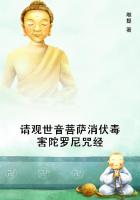During the months that followed, Mr. Ramy visited the sisters with increasing frequency. It became his habit to call on them every Sunday evening, and occasionally during the week he would find an excuse for dropping in unannounced as they were settling down to their work beside the lamp. Ann Eliza noticed that Evelina now took the precaution of putting on her crimson bow every evening before supper, and that she had refurbished with a bit of carefully washed lace the black silk which they still called new because it had been bought a year after Ann Eliza's.
Mr. Ramy, as he grew more intimate, became less conversational, and after the sisters had blushingly accorded him the privilege of a pipe he began to permit himself long stretches of meditative silence that were not without charm to his hostesses.
There was something at once fortifying and pacific in the sense of that tranquil male presence in an atmosphere which had so long quivered with little feminine doubts and distresses; and the sisters fell into the habit of saying to each other, in moments of uncertainty: "We'll ask Mr. Ramy when he comes," and of accepting his verdict, whatever it might be, with a fatalistic readiness that relieved them of all responsibility.
When Mr. Ramy drew the pipe from his mouth and became, in his turn, confidential, the acuteness of their sympathy grew almost painful to the sisters. With passionate participation they listened to the story of his early struggles in Germany, and of the long illness which had been the cause of his recent misfortunes.
The name of the Mrs. Hochmuller (an old comrade's widow) who had nursed him through his fever was greeted with reverential sighs and an inward pang of envy whenever it recurred in his biographical monologues, and once when the sisters were alone Evelina called a responsive flush to Ann Eliza's brow by saying suddenly, without the mention of any name: "I wonder what she's like?"One day toward spring Mr. Ramy, who had by this time become as much a part of their lives as the letter-carrier or the milkman, ventured the suggestion that the ladies should accompany him to an exhibition of stereopticon views which was to take place at Chickering Hall on the following evening.
After their first breathless "Oh!" of pleasure there was a silence of mutual consultation, which Ann Eliza at last broke by saying: "You better go with Mr. Ramy, Evelina. I guess we don't both want to leave the store at night."Evelina, with such protests as politeness demanded, acquiesced in this opinion, and spent the next day in trimming a white chip bonnet with forget-me-nots of her own ******. Ann Eliza brought out her mosaic brooch, a cashmere scarf of their mother's was taken from its linen cerements, and thus adorned Evelina blushingly departed with Mr. Ramy, while the elder sister sat down in her place at the pinking-machine.
It seemed to Ann Eliza that she was alone for hours, and she was surprised, when she heard Evelina tap on the door, to find that the clock marked only half-past ten.
"It must have gone wrong again," she reflected as she rose to let her sister in.
The evening had been brilliantly interesting, and several striking stereopticon views of Berlin had afforded Mr. Ramy the opportunity of enlarging on the marvels of his native city.
"He said he'd love to show it all to me!" Evelina declared as Ann Eliza conned her glowing face. "Did you ever hear anything so silly? I didn't know which way to look."Ann Eliza received this confidence with a sympathetic murmur.
"My bonnet IS becoming, isn't it?" Evelina went on irrelevantly, smiling at her reflection in the cracked glass above the chest of drawers.
"You're jest lovely," said Ann Eliza.
Spring was ****** itself unmistakably known to the distrustful New Yorker by an increased harshness of wind and prevalence of dust, when one day Evelina entered the back room at supper-time with a cluster of jonquils in her hand.
"I was just that foolish," she answered Ann Eliza's wondering glance, "I couldn't help buyin' 'em. I felt as if I must have something pretty to look at right away.""Oh, sister," said Ann Eliza, in trembling sympathy. She felt that special indulgence must be conceded to those in Evelina's state since she had had her own fleeting vision of such mysterious longings as the words betrayed.
Evelina, meanwhile, had taken the bundle of dried grasses out of the broken china vase, and was putting the jonquils in their place with touches that lingered down their smooth stems and blade-like leaves.
"Ain't they pretty?" she kept repeating as she gathered the flowers into a starry circle. "Seems as if spring was really here, don't it?"Ann Eliza remembered that it was Mr. Ramy's evening.
When he came, the Teutonic eye for anything that blooms made him turn at once to the jonquils.
"Ain't dey pretty?" he said. "Seems like as if de spring was really here.""Don't it?" Evelina exclaimed, thrilled by the coincidence of their thought. "It's just what I was saying to my sister."Ann Eliza got up suddenly and moved away; she remembered that she had not wound the clock the day before. Evelina was sitting at the table; the jonquils rose slenderly between herself and Mr.
Ramy.















